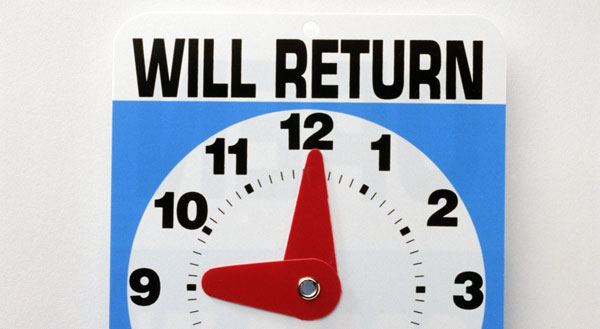Consulting, convening, coding, covering new ground, plus occasional commentary.
Tao of consulting: Why working weekends doesn't work

What could be more fitting for a Canada Day / Independence Day post, than a plea for you to take the weekend off?
That’s right: it’s your friendly neighborhood slacker trying to spread the message of slacktivism throughout the world.
But let’s get this whole slacker thing straight: I’m a slacker as much for your benefit, as I am for my own. How does that work you ask? Read on…
We all know people that are over-committed. Have you noticed that it’s a chronic state for many of them? It’s the classic case of “if you want something done, ask a busy person.” Busy people trend toward busier not less busy, it’s pretty much a fact of life.
The problem is: it can often lead into a downward spiral – a permanent state of busy and over-committed that self-perpetuates. I’m hear to tell you that working weekends is not the answer.
“What’s the big deal about working weekends?” you ask. The downsides are considerable, I assure you:
-
Neglecting more important “work”: For example, pursuing interests outside of what you get paid for, or charge clients for. It’s common knowledge that lateral thinking capacity is increased when a person has a wider set of experiences to draw from. Advice: Expand your mind. Take a course in something new, join a Hackerspace and make something, or push yourself to learn a new language. It’s “work,” yes; but it’s the most important kind.
-
Not giving yourself time to repair: it’s also well known that the human body follows cycles. If those cycles are ignored, not only does productivity decrease – especially creative problem solving skills – but also the body’s ability to repair itself, and defend itself from illness. Taking regular breaks, including a nice long one at the end of the work week, is critical toward ensuring better performance over the long run. You’ll be more focused when you’re working, and less likely to miss work because you’re sick.
-
Starting the week tired: The one side effect of working on weekends (yes, I’ve done it, as much as I hate to admit it) that I feel most immediately & significantly is a lack of excitement on Monday morning. The work week is a sprint for me – it’s a personal contest to see how efficiently I can use my time, and how productive I can be (within the bounds of being a slacker, of course). Starting out tired on Monday almost inevitably leads to a less productive week, which – in turn – can trigger that impulse to work on the weekend. You see? It’s a negative feedback loop! And one that you should fight to get out of.
-
Setting a bad example Most importantly, working weekends sets a bad example for your staff and peers. Sending work-related e-mails on Saturday or Sunday to co-workers says “Hey, I’m over-committed and trying to catch-up,” and “I’m expecting you to work weekends too!” Even if neither are the message you intended, that’s the signal it sends. Advice: if you have to write them on Sunday to get them out of your head – so be it – just save them as drafts and send them Monday morning.
Remember: Doing amazing work in the world usually comes from doing amazing work in your life first. And there’s no better way to start doing amazing work in your life than to give yourself the time to do it.
Weekends are a great place to start. So start by taking this weekend off.
Happy Canada Day & Independence Day weekend. :)
– The Slacker-in-Chief
About
Hi, I'm Phillip Smith, a veteran digital publishing consultant, online advocacy specialist, and strategic convener. If you enjoyed reading this, find me on Twitter and I'll keep you updated.

Related
Want to launch a local news business? Apply now for the journalism entrepreneurship boot camp
I’m excited to announce that applications are now open again for the journalism entrepreneurship boot camp. And I’m even more excited to ...… Continue reading
Previously
Learning lab update: 1st round of invitations out, plus preliminary schedule & format
From the future
@KnightMozilla learning lab update: Seven days until liftoff